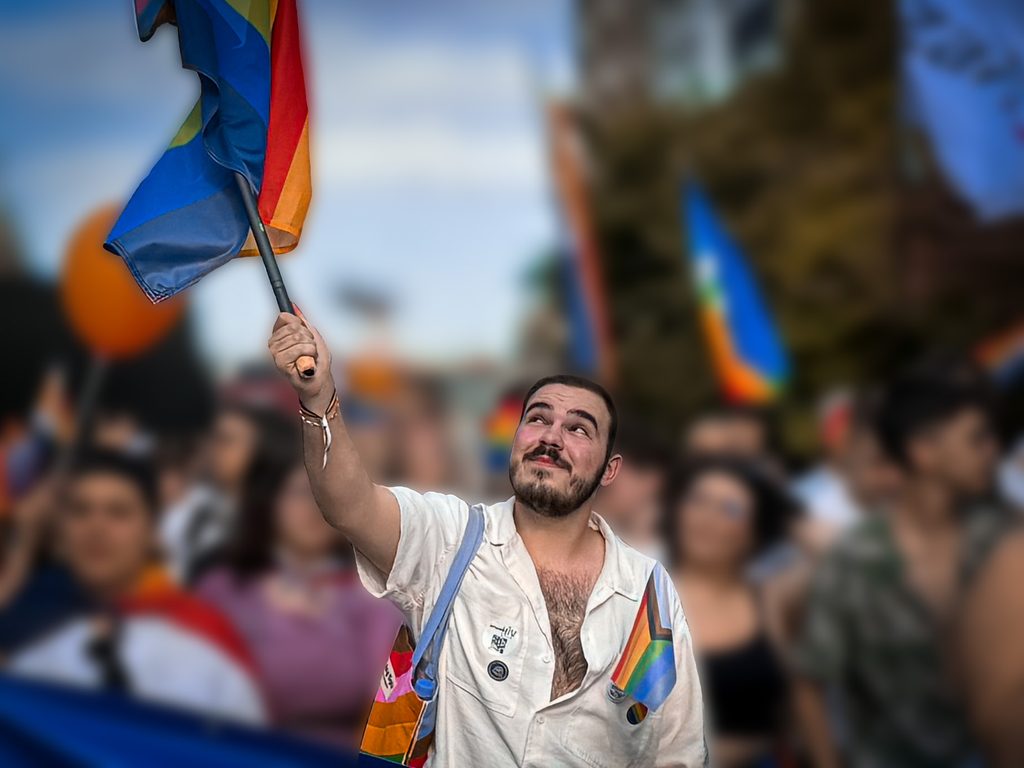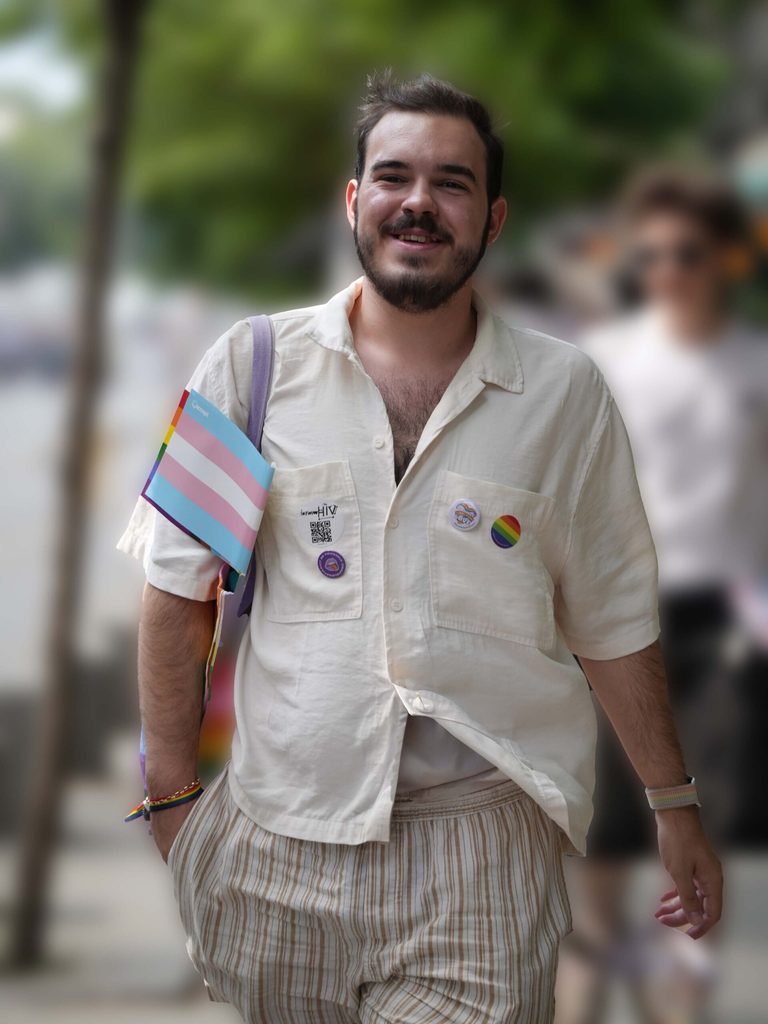Why inclusion in crisis response can’t wait
12 August 2025LGBTIQ+ refugees and marginalised groups face unique risks in times of crisis. Armand, a project officer with Plan International Romania, reflects on what inclusive humanitarian response truly means, and why care must be the cornerstone of justice.

By Armand Volentiru, Admin and Project Officer, Plan International Romania
I’ve always believed that real solidarity means seeing the people who often go unseen, and I also believe that in many cases, real, consistent, inclusive solidarity saves lives. As a queer person in Romania, I’ve spent years advocating for LGBTIQ+ rights — long before I joined Plan International Romania as an Admin and Project Officer. So even though I haven’t spent much time directly on the ground in this role, I carry with me a lived understanding of how emergencies affect people differently, and how easily the needs of marginalised groups are overlooked in a crisis.
That’s what drew me to humanitarian work in the first place. I’ve seen how systems fall short for those who don’t fit the expected mould, and I believe that justice, when it’s done right, should be a form of care.
When we miss people, we risk harm

Right now, in our context, the situation is changing. The massive initial emergency response efforts when everyone rushes in have passed. Now we’re in the long, quieter stretch, and that’s where the real work needs to happen: in mental health support, in legal documentation pathways, in safe housing, in helping people find a sense of stability. Many people feel stuck in-between, and many are afraid their temporary protection status might be revoked after March 2026, so they are trying to get a residence permit. It’s hard, especially for LGBTIQ+ refugees and others who were already navigating systemic exclusion long before they crossed any other border.
I hear this again and again: people are exhausted. Not just physically, but emotionally. They’ve carried the trauma of displacement, only to find themselves caught in bureaucratic systems that don’t account for who they are or what they’ve survived. For queer individuals, safety and dignity aren’t optional, they’re fundamental. And too often, they’re the first things compromised. Queer people want all the rights we should have, and they want to be seen as whole human beings. When we default to a one-size-fits-all response model, we miss people, and when we miss people, we risk harm.
Inclusive training should be a priority
That’s why I believe inclusive training should be a priority; training that prepares staff to respond to people with diverse gender identities, sexualities, trauma backgrounds, and health needs. We need services that are designed not for the ‘average beneficiary’ but for those who are usually pushed to the margins; people living with HIV, trans youth, Roma families, queer refugees. Inclusion cannot be the afterthought, it has to be the blueprint.
Even though I don’t work directly with children, I’ve heard from colleagues that displaced kids are navigating two school systems at once, often without the language, support, or space to process their experiences. Some don’t feel safe, or simply unseen. And that’s something education and inclusive education can change.
“Let’s keep listening, learning, and pushing humanitarian work to be more than just logistics.”
Armand
One thing that gives me hope is seeing our support for sexual and reproductive health rights and inclusive education take root. As someone who had to piece that knowledge together on my own growing up, I know how transformative it is to see initiatives that simply say: ‘You matter. You’re not alone.’.
Prioritise dignity and inclusion
If I could ask one thing of donors, it would be to fund services that prioritise dignity and put inclusion at their centre, which aren’t built just for the average refugee, but for the ones who’ve always lived outside the margins.
“Inclusion cannot be the afterthought, it has to be the blueprint.”
Armand
And if I could change one thing? I’d create a queer-inclusive programming tool and I’d offer tailored training to humanitarian staff. I’d partner with grassroots LGBTIQ+ groups who have too often been left to carry the burden alone. I’ve seen local queer activists do extraordinary work with limited resources because no one else was there, but that shouldn’t be how it works.
What keeps me going is the power of community. I’ve seen queer refugees support one another, and I’ve seen volunteers and staff go above and beyond to show compassion in little moments of real change when someone finally feels they are being heard. Even small acts of care can mean survival for someone. Those moments matter. They’re not footnotes, they’re the heart of it. Our impact is strongest when we stay connected to the people we serve, especially those whose voices are rarely heard. Let’s keep listening, learning, and pushing humanitarian work to be more than just logistics. Let’s make it about justice, care, dignity, and real, lasting solidarity.
Categories: Emergencies, Youth empowerment


